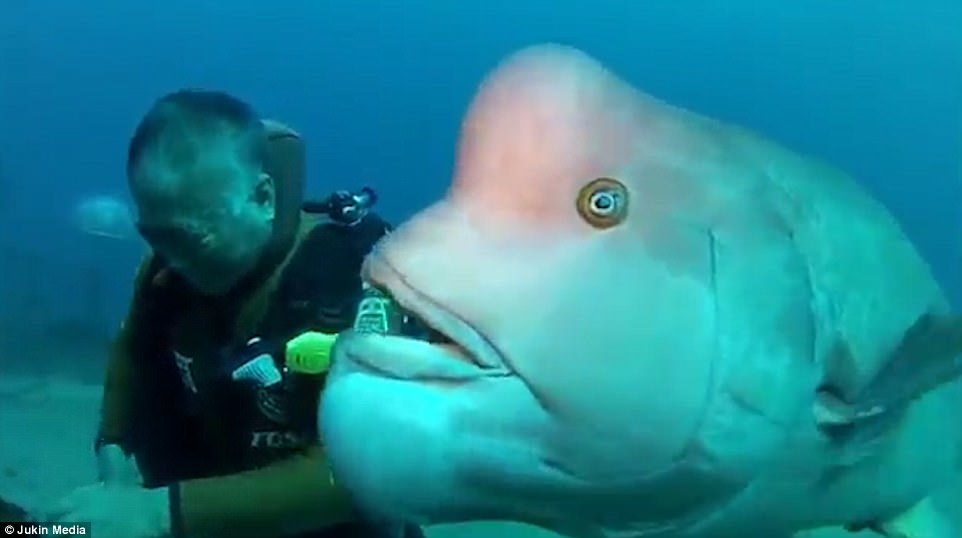
A transgender fish has been captured changing sex for BBC Documentary Blue Planet II.
Footage of a transgender fish, known as the Asian Sheepshead Wrasse, changing sex will be aired this Sunday during Blue Planet II on BBC One.
The fish changes from female to male because it can pass on more genes as a male, according to scientists. It’s likely that the fish is born with its reproductive organs only partly formed, like other transgender fish.
This will be the first time the gender change will be shown on film, and the Blue Planet team have been filming for the past four years to capture this footage.
The Asian Sheepshead Wrasse, or Semicossyphus reticulatus if you will, is one of the largest wrasses’ and inhabits rocky reef areas in western Pacific Ocean.
Blue Planet II is coming back to UK screens this year 16 years after the original series, and while the tech has improved significantly – the crew used suction cameras to give the impression you’re riding on the back of a whale – you’ll be pleased to know the narrator has stayed the same.
Everyone’s favourite soothing voice Sir David Attenborough is back for this series, and he relayed his favourite story from the series in an interview with The Telegraph ahead of the show:
‘There’s a little anemone fish off the reef living in the sand that is surrounded by dangers but it finds refuge in the tentacles of an anemone, because it alone is immune to their poison.
‘But the female has to lay eggs, and she can’t do that on the soft tentacles of an anemone. So the little male goes around trying to find something where she could lay safely.
‘He finds an empty coconut shell, but the trouble is it’s miles away from the safety of the anemone. So he decides he’s going pull the thing all the way back. So he struggles with it, and the triumph on his little face when he does.’
We can’t decide what we’re more excited about, hearing Attenborough’s voice, or seeing this little fish’s face.
And we might hearing Blue Planet presenter Attenborough’s voice for a while longer, as the 91-year-old says he sees no reason why he can’t live to 100-years-old.
He’ll be keeping himself busy too – with four new documentaries already in the works, they cover ants, extinct sea dragons, animal eggs and elephants.













